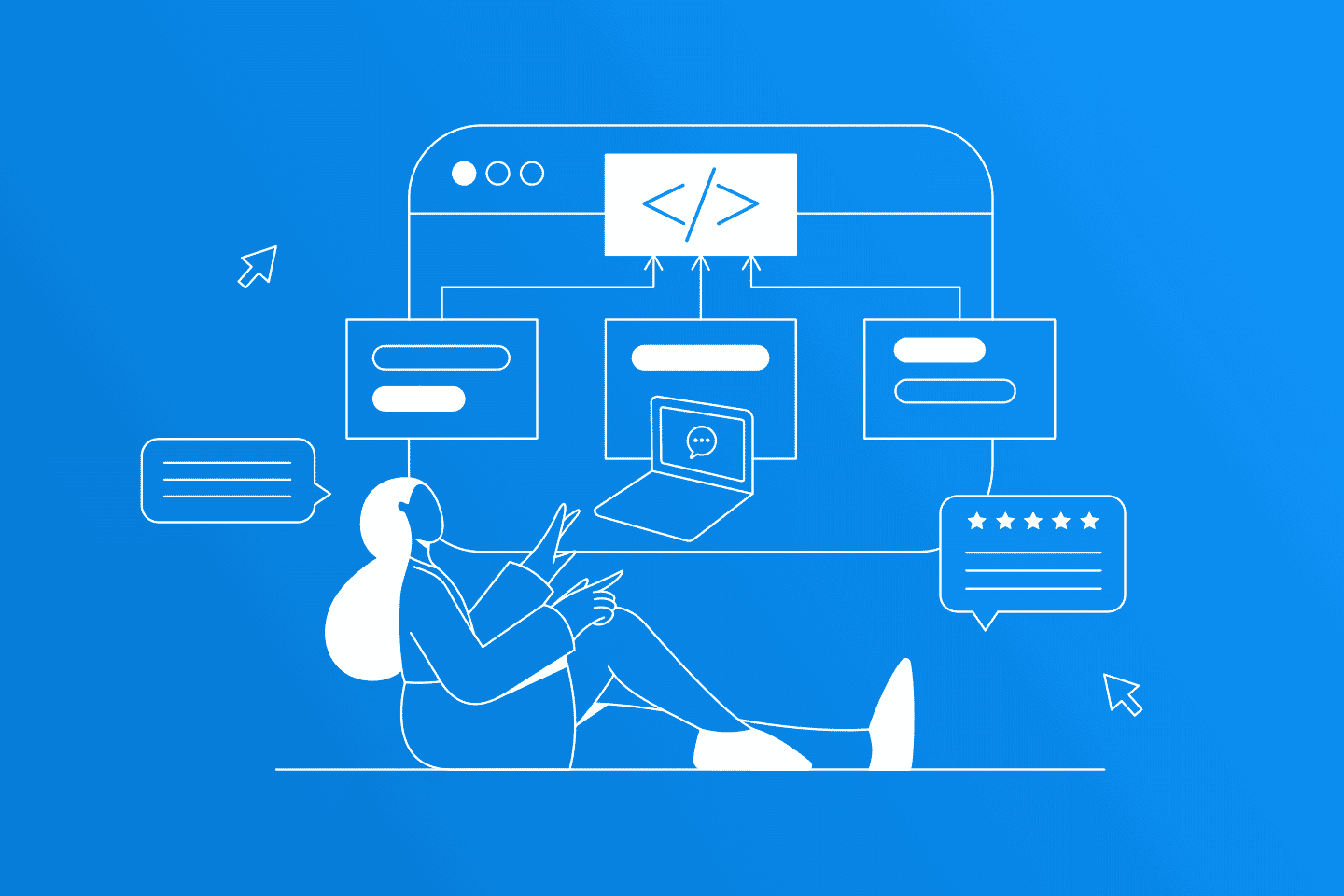It’s easy to get caught up in the whirlwind of your business. There are just too many things that need your attention. Finances, marketing, customer service, and the list just goes on and on. Still, giving value to customers is the main priority—and this is where technical support comes in.
Thankfully, technical support outsourcing exists as an option for businesses that want to offload this part of the business.
What is outsourced technical support?

Technical support outsourcing is hiring an external company to manage your technical support. This includes answering inquiries from customers and troubleshooting issues. Specifically, technical support agents do the following:
- assist customers and provide updates
- serve as the first point of contact for those encountering technical issues
- troubleshoot technical problems and issues
- help diagnose technical errors and bugs
- develop technical support guides or knowledge bases
Basically, when you choose to outsource your technical support, you’re choosing to contract a company instead of hiring new team members. You don’t have to hire, train, manage, and monitor an entire team of agents. Instead, you have a point person from the external company who provides you all the progress and updates you need.
Technical support tiers and levels
Since technical support has a pretty wide coverage, many companies follow specific tiers to specify the type of support.
- Tier 1: Common technical issues and frequently asked questions such as trouble logging in, forgetting passwords, or changing account details.
- Tier 2: More advanced technical issues that require more effort and time to resolve. The agents will need to do in-depth research and comprehensive troubleshooting to resolve the issues.
- Tier 3: Complicated technical issues that will need to be escalated to specialists and experts.
5 benefits of outsourced technical support

So, the big question is: is outsourced technical support really that different from in-house support?
What are the main pros of outsourcing technical support instead of building an in-house team?
Reduces operational costs
When you decide to build your in-house team, you need to allot resources for recruiting, interviewing, onboarding, training, and development. Budget is just one thing—making your own team will require a lot of effort and time as a business owner.
Outsourcing can help you cut at least 70% of labor costs. Aside from significantly cutting down costs, outsourcing also increases the efficiency of your operations.
You no longer have to go through the motions of building a training plan, training your team, and overseeing their performance on a daily basis. An outsourced technical support team already has these systems in place, so you don’t need to worry about micromanaging them.
In short, outsourcing leads to fewer costs and faster processes.
Access to the latest technology-powered solutions
An outsourced technical support team usually already has its own tools and state-of-the-art technology to manage simultaneous tasks across multiple channels. This is also why they are able to automate some repetitive tasks and processes.
Technical support powered by the latest tech can provide fast assistance, which will lead to a boost in customer satisfaction and loyalty.
Ability to provide round-the-clock support
For businesses with customers all over the world, office hours can be confusing. If your technical support is purely in-house, they’re probably servicing only one-time zone.
Outsourcing technical support means you can provide 24/7 access to your help desk and customer support. Outsourced teams usually work in shifts to ensure that there is always someone on standby.
Recently, 24/7 chat support has gained popularity for its availability, accessibility, and speed.
Capacity to scale up and down easily as needed
Building and managing your own technical support team is one thing. Scaling the team as needed is another.
To illustrate, Black Friday and Cyber Monday would definitely have a bigger need for technical support compared to summer.
When you outsource your technical support, you won’t need to worry about the process of scaling up or down depending on the volume of queries your business is receiving. If there is an increase in volume, the outsourced company will handle hiring and training additional staff.
Access to top global talent
Outsourced technical support can come from literally anywhere in the world so you can work with the best even if they’re not in the same country as your business. This is very useful, especially for businesses that have customers from all over the world and who might need multilingual support agents.
Should you or should you not outsource technical support?

While technical support outsourcing does have a plethora of benefits, it may not be the right fit for every company.
Here’s a quick guide on when you should or should not outsource:
Outsourced technical support is a go if:
- Your business has standard responses per issue
- You have a lot of repetitive tasks day in and day out
- Customers encounter the same issues and if these same issues have the same solutions
- You’re looking for cost-efficient solutions
- You require 24/7 support
- You are looking into investing in advanced tools
- You want to spend more time on the core business operations
Do not outsource technical support if:
- Majority of technical issues or challenges require custom or tailored solutions
- Dealing with customer issues requires specific knowledge and expertise
- You prefer having complete control over your support operations
How to outsource technical support services

Step 1: Assess your needs
Start by understanding what your business requires from an outsourced technical support provider. This initial step ensures you find a partner that can meet your specific needs.
- Identify the types of technical issues you need help with.
- Determine the level of support required (e.g., 24/7, specific hours).
- Evaluate the volume of support inquiries you receive.
- Consider any specific technical expertise needed (e.g., software, hardware).
Step 2: Research potential providers
Once you know your needs, start researching potential technical support providers. Look for companies that have a strong reputation and can offer the services you need.
- Search for providers with good reviews and testimonials.
- Compare service offerings and pricing from multiple providers.
- Check for any industry-specific experience.
- Look for case studies or success stories.
Step 3: Evaluate provider capabilities
It’s crucial to ensure that the provider you choose has the technical expertise and resources to meet your needs.
- Assess their technical expertise and certifications.
- Understand their support processes and methodologies.
- Check if they use the latest technology and tools.
- Ensure they offer security and compliance measures.
Step 4: Define your requirements and expectations
Clearly outline what you expect from your technical support provider. This helps in setting up a successful partnership.
- Define service level agreements (SLAs) and key performance indicators (KPIs).
- Specify the scope of work and support coverage.
- Agree on communication protocols and reporting methods.
- Establish a timeline for onboarding and implementation.
Step 5: Set up clear communication channels
Effective communication is key to managing outsourced technical support. Make sure you have robust communication channels in place.
- Establish regular update meetings or calls.
- Designate dedicated points of contact on both sides.
- Use project management tools for tracking progress and issues.
- Encourage open and transparent communication.
Step 6: Monitor and review performance
Once the technical support services are in place, continuously monitor and review the performance to ensure it meets your expectations.
- Track the agreed SLAs and KPIs regularly.
- Solicit feedback from your team and customers.
- Conduct periodic performance reviews with the provider.
- Adjust the service scope or processes as needed.
Step 7: Foster a collaborative relationship
Building a strong, collaborative relationship with your outsourced technical support provider can lead to long-term success.
- Encourage feedback and suggestions for improvement.
- Recognize and reward good performance.
- Maintain a partnership mentality rather than a transactional one.
- Work together on long-term goals and improvements.
Ready to move forward with outsourced technical support?

Outsourced technical support is only getting better—with state-of-the-art tools and access to global manpower.
Plus, the process doesn’t have to be complicated. LTVplus provides custom technical support solutions so you can focus on your core business instead of handling hiring, training, execution, and monitoring.
Schedule a free consultation to learn more about the available outsourced technical support solutions for your business.




